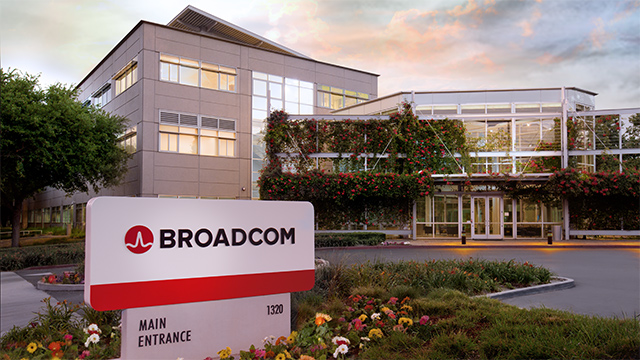Broadcom Inc. stands as a global leader in infrastructure technology, shaping the connected world through pioneering innovation and industry-leading solutions. With a rich heritage spanning over 60 years, the company boasts a legacy built on collaboration, engineering excellence, and relentless pursuit of progress. In this article, we’ll cover Top Broadcom competitors in the world.
Headquartered in Palo Alto, California, Broadcom’s roots trace back to the technical prowess of AT&T/Bell Labs, Lucent, and Hewlett-Packard/Agilent. This formidable foundation empowers the company to develop cutting-edge technologies that drive connectivity across the globe.
Through a series of strategic acquisitions, including industry giants like Broadcom, LSI, Brocade, CA Technologies, Symantec’s enterprise security business, and VMware, Broadcom has established itself as a powerhouse in the technology landscape. This extensive portfolio, coupled with unparalleled engineering talent and global reach, positions Broadcom at the forefront of shaping the future of infrastructure technology.
For More Information: The Mega Merger: A Deep Dive into Broadcom VMWare Acquisition
Focused on technology leadership and delivering category-leading solutions in both semiconductors and infrastructure software, Broadcom empowers its customers, encompassing the world’s most successful companies, to build and thrive in an ever-evolving technological environment. The company’s unwavering commitment to innovation, operational excellence, and a diverse product portfolio ensures its continued leadership in this dynamic and critical sector.
Broadcom’s impact extends far beyond the realm of technology. The company actively fosters a culture of collaboration, social responsibility, and environmental stewardship, solidifying its position as a responsible and impactful force in the global community.
Top Competitors of Broadcom in the world
Broadcom operates in a dynamic and competitive technological landscape, facing challenges from various companies across different segments. While the specific competitors can vary depending on the specific product or service line, here are seven notable contenders:
1. Intel (INTC)

While Intel and Broadcom are both major players in the semiconductor industry, they compete in different segments and have distinct strengths and weaknesses. Here’s a breakdown of their competitive landscape:
Areas of Competition:
- Central Processing Units (CPUs): Intel is the dominant player in this market, known for its x86 processors used in personal computers and servers. Broadcom, however, does not directly compete in this segment.
- Graphics Processing Units (GPUs): Both companies offer integrated graphics solutions, but Intel’s focus remains on CPUs, while Broadcom concentrates on networking and data center applications with its GPUs.
- Networking and Communication Solutions: Broadcom holds a strong position in this area, providing a wide range of networking chips and software for data centers, enterprise networks, and wireless communication. Intel is also present in this market with its Ethernet controllers and network interface cards, but to a lesser extent compared to Broadcom.
- Internet of Things (IoT): Both companies are looking to expand their presence in the growing IoT market. Intel offers various hardware and software solutions for connected devices, while Broadcom focuses on providing connectivity chips and wireless technologies.
Competition in Tabular Form:
| Feature | Intel (INTC) | Broadcom (AVGO) |
|---|---|---|
| Primary Market | CPUs, data center solutions | Networking and communication solutions, data center solutions |
| Key Products | CPUs, integrated graphics, Ethernet controllers | Networking chips, software, wireless technologies |
| Competitive Advantage | Leading-edge CPU technology, brand recognition | High profitability, strong market position in networking |
| Areas of Direct Competition | Integrated graphics, data center solutions (partially) | Limited direct competition, except for some areas in networking |
2. Taiwan Semiconductor Manufacturing Company (TSMC)
![]()
While TSMC and Broadcom are both major players in the semiconductor industry, they operate in different segments of the value chain and have distinct business models. Here’s a breakdown of their competitive landscape:
Nature of Competition:
- TSMC: A contract chip manufacturer that produces semiconductors based on designs provided by other companies, including Broadcom. TSMC does not design or sell its own branded products.
- Broadcom: A fabless semiconductor company that designs and develops its own chips but relies on external foundries like TSMC for manufacturing. Broadcom then sells these chips to various end users.
Areas of Interaction:
- Manufacturing: Broadcom relies on TSMC for the production of its chip designs. TSMC’s manufacturing capabilities, pricing, and capacity directly impact Broadcom’s production costs and lead times.
- Technology: Both companies are constantly innovating in semiconductor technology to improve performance, efficiency, and power consumption. Advancements by TSMC can potentially benefit Broadcom’s chip designs.
- Customer Acquisition: While they don’t directly compete for end customers, both companies strive to attract leading-edge design wins from various industries like computing, networking, and consumer electronics
Competition
| Feature | TSMC (TSM) | Broadcom (AVGO) |
|---|---|---|
| Business Model | Contract chip manufacturer | Fabless semiconductor company |
| Core Competency | Manufacturing expertise | Chip design and development |
| Competitive Advantage | Leading-edge technology, high volume production | Diverse product portfolio, strong brand recognition |
| Areas of Interaction | Manufacturing partnership, technology advancements | Customer acquisition in certain markets |
Overall, TSMC and Broadcom are not direct competitors in the traditional sense. However, their relationship is interdependent, with each company influencing the other’s success.
3. Advanced Micro Devices (AMD)
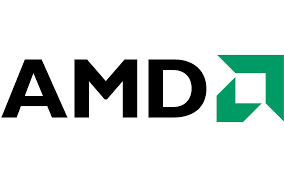
While AMD and Broadcom are both major players in the semiconductor industry, they compete in different segments with some overlap, leading to a complex competitive dynamic. Here’s a detailed breakdown:
Areas of Competition:
- Central Processing Units (CPUs): AMD is a direct competitor to Broadcom in the server CPU market, offering its EPYC processors against Broadcom’s MIPS and Cavium-based solutions.
- Graphics Processing Units (GPUs): Both companies offer high-performance GPUs for various applications, including gaming, data center processing, and artificial intelligence. AMD’s Radeon series competes directly with Broadcom’s Radeon Instinct GPUs in certain segments.
- Semi-custom chips: Both companies design and manufacture custom chips for specific applications, catering to different markets and customer needs.
Competition:
| Feature | AMD (AMD) | Broadcom (AVGO) |
|---|---|---|
| Primary Market | CPUs, GPUs | Networking and communication solutions, data center solutions |
| Key Products | Ryzen & EPYC CPUs, Radeon GPUs | Networking chips, software, wireless technologies, custom chips |
| Competitive Advantage | Competitive pricing, strong CPU and GPU performance | Diversified product portfolio, established market presence |
| Areas of Direct Competition | Server CPUs, high-performance GPUs (in some segments) | Limited direct competition, except for server CPUs and some custom chip markets |
Overall, AMD and Broadcom are not full-fledged competitors but have overlapping areas in server CPUs, high-performance GPUs, and custom chip segments. Their competition focuses on offering innovative and efficient solutions at competitive prices to win over customers in these specific markets.
4. Applied Materials (AMAT) and ASML (ASML)

While Applied Materials (AMAT), ASML (ASML), and Broadcom (AVGO) are all major players in the semiconductor industry, their roles and areas of competition differ significantly. Here’s a breakdown of their competitive landscape:
Nature of Competition:
- Applied Materials (AMAT) and ASML (ASML): These companies are equipment suppliers that provide the advanced machinery and tools used to manufacture semiconductors. Broadcom, on the other hand, is a fabless semiconductor company that designs and develops chips but relies on external foundries like TSMC for manufacturing.
Areas of Interaction:
- Technology Advancement: AMAT and ASML continuously innovate and develop new equipment and processes crucial for manufacturing ever-smaller and more powerful chips. These advancements directly impact Broadcom’s ability to design and produce high-performance chips.
- Pricing and Availability: The cost and availability of AMAT and ASML’s equipment can significantly impact Broadcom’s production costs and capacity.
Competition in Tabular Form:
| Feature | Applied Materials (AMAT) & ASML (ASML) | Broadcom (AVGO) |
|---|---|---|
| Business Model | Equipment supplier | Fabless semiconductor company |
| Core Competency | Semiconductor manufacturing equipment | Chip design and development |
| Competitive Advantage | Leading-edge technology, market leadership | Diverse product portfolio, strong brand recognition |
| Areas of Interaction | Technology advancements, pricing, and equipment availability | Customer of AMAT and ASML’s equipment |
Overall, AMAT and ASML are not direct competitors of Broadcom. However, they play a crucial role in enabling Broadcom’s chip production by providing the necessary equipment and technology.
5. Oracle (ORCL) and Salesforce (CRM)
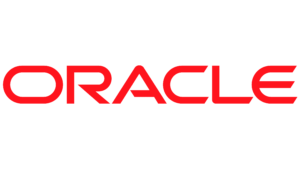
While Oracle (ORCL), Salesforce (CRM), and Broadcom (AVGO) are all major players in the technology industry, they operate in distinct segments and have limited direct competition. Here’s a breakdown of their competitive landscape:
Nature of Competition:
- Oracle (ORCL): A leading provider of enterprise software solutions, including database management systems, cloud applications, and enterprise resource planning (ERP) software.
- Salesforce (CRM): A cloud-based customer relationship management (CRM) software provider offering solutions for sales, marketing, and customer service.
- Broadcom (AVGO): A fabless semiconductor company designing and developing various chips for data center, networking, and communication applications.
Limited Areas of Interaction:
- Indirect Competition: Broadcom’s core business does not directly compete with Oracle or Salesforce’s software offerings. However, there might be some indirect competition in the cloud computing space, where all three companies offer certain cloud-based solutions.
- Potential Customer Overlap: Both Oracle and Salesforce might utilize Broadcom’s chips in their data center infrastructure or devices used by their customers.
Competition:
| Feature | Oracle (ORCL) | Salesforce (CRM) | Broadcom (AVGO) |
|---|---|---|---|
| Primary Market | Enterprise software | Customer relationship management (CRM) | Semiconductor chips |
| Key Products | Database software, cloud applications, ERP software | CRM software, marketing automation tools, customer service solutions | Networking chips, data center solutions, wireless technologies |
| Competitive Advantage | Brand recognition, diverse product portfolio | Cloud-based solutions, strong customer focus | Leading-edge technology, market share in certain segments |
| Areas of Direct Competition | Limited | Limited | Limited |
Overall, Oracle, Salesforce, and Broadcom operate in different segments with minimal direct competition. However, there might be some indirect competition in the cloud computing space and potential customer overlap in terms of utilizing each other’s products or services.
6. Cisco Systems (CSCO)
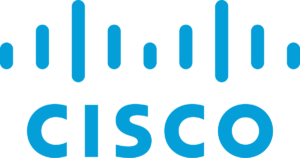
Cisco Systems (CSCO) and Broadcom (AVGO) are both major players in the technology industry, but they compete in different segments with some areas of overlap. Here’s a detailed breakdown of their competitive landscape:
Areas of Competition:
- Networking hardware: Both companies offer a range of networking products, including routers, switches, and wireless access points. Cisco traditionally held a dominant position in this market, but Broadcom has gained significant market share in recent years through acquisitions.
- Data center solutions: Both companies are increasingly focusing on data center networking and switching solutions, catering to the growing demand for cloud computing and high-performance computing.
- Software and services: Cisco offers a broader range of network management software and professional services compared to Broadcom, which primarily focuses on hardware products.
Competition in Tabular Form:
| Feature | Cisco Systems (CSCO) | Broadcom (AVGO) |
|---|---|---|
| Primary Market | Enterprise networking | Networking and communication solutions |
| Key Products | Routers, switches, wireless access points, network management software | Networking chips, data center solutions |
| Competitive Advantage | Brand recognition, diverse product portfolio, strong presence in enterprise networking | Leading-edge technology, competitive pricing, focus on specific networking segments |
| Areas of Direct Competition | Networking hardware, data center solutions (partially) | Limited direct competition, except for some areas in networking hardware |
Overall, Cisco and Broadcom are competitors in the networking hardware market, particularly in areas like routers, switches, and data center solutions. However, Cisco has a broader product portfolio that includes software and services, while Broadcom focuses more on hardware and chip technology.
7. Arista Networks
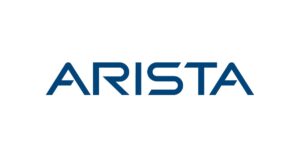
While both Arista Networks (ANET) and Broadcom (AVGO) are major players in the networking industry, they compete in different segments with some areas of overlap, leading to a complex competitive dynamic. Here’s a detailed breakdown:
Areas of Competition:
- High-performance Ethernet switching: Both companies offer high-performance Ethernet switches used in data centers and enterprise networks. Arista focuses on building its own custom switching platforms, while Broadcom supplies the underlying switch silicon (chips) to other manufacturers.
- Cloud networking: Both companies are increasingly targeting the growing cloud networking market with solutions optimized for scalability and performance in cloud environments.
Competition in Tabular Form:
| Feature | Arista Networks (ANET) | Broadcom (AVGO) |
|---|---|---|
| Primary Market | High-performance data center and enterprise networking | Networking and communication solutions |
| Key Products | High-performance Ethernet switches, cloud networking solutions | Switch silicon, networking chips, data center solutions |
| Competitive Advantage | Innovative software features, strong customer focus | Leading-edge chip technology, broader product portfolio |
| Areas of Direct Competition | High-performance Ethernet switching, cloud networking (partially) | Limited direct competition, except for specific switch models |
Overall, Arista and Broadcom are not direct competitors in the traditional sense. However, they compete in the high-performance Ethernet switching market, with Arista focusing on complete network solutions and Broadcom supplying the core chip technology. In cloud networking, both companies are vying for a share of the rapidly growing market.
It’s important to note that the competitive landscape is constantly evolving, and the significance of each competitor can vary depending on the specific market segment and product category. Broadcom navigates this complex landscape by leveraging its diversified portfolio, technological expertise, and global reach to maintain its position as a leader in the infrastructure technology sector.
Also Read: Top 9 Competitors and Alternatives of IBM
To read more content like this, subscribe to our newsletter

